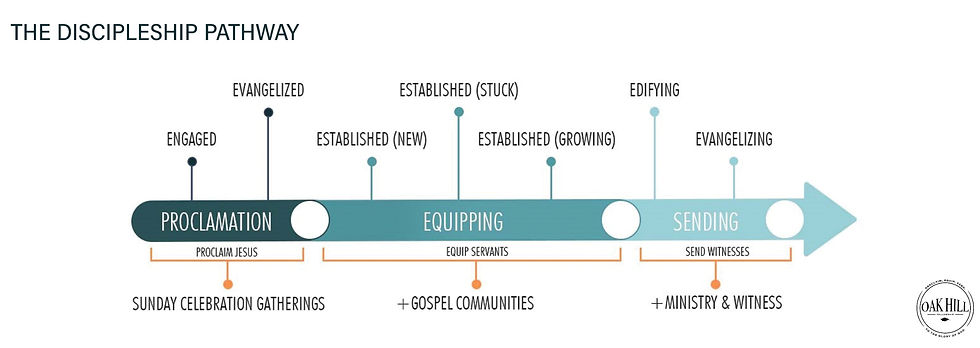Truth in Love (part 2)
- Pastor Ben
- Nov 10, 2021
- 3 min read
Yesterday we started a two-part blog post on what it means to speak the truth in love (Eph. 4:15). It's not, as we sometimes treat it, hitting someone with the cold hard truth while saying, "I love you." It's also not withholding truth in the name of love. To speak the truth in love, we must speak the truth that follows the contours of the gospel while embodying all the characteristics of biblical love.

In part 1, we looked at how the gospel contours shape the truth that we speak. Today we are going to consider the characteristics of biblical love that govern how we speak it. These characteristics are outlined for us in the famous "love chapter" of 1 Cor. 13.
Too often, 1 Corinthians 13 gets relegated to weddings and anniversary cards (it does apply there!), and we forget that the actual context is the love that exists between believers in the church. It is the most thorough definition of love in the scriptures, and therefore is helpful in helping us think deeply about what it means to speak the truth in love. Let's consider each characteristic of love individually as we meditate on how to apply this:
Patient - Are you willing to take the long road with this person to help them apply the truth, or are you rushing to give the quick fix?
Kind - Is there any unkindness in your tone or motivation that would add offense to the truth you are sharing?
Not Envious - Is there any sense in which envy or rivalry is motivating your speech with this person?
Not Boastful - Are you bringing this truth with an air of superiority or in any way that puts yourself first?
Not Arrogant - Is there pride in your heart as you share this truth? Or do you see yourself as a fellow sinner and sufferer who is in just as much need of truth and love?
Not Rude - Similar to kindness, have you checked your words for any sign of brashness or harshness?
Not Insistent on its Own Way - Speaking the truth in love is about the way of Jesus, not about our personal preferences or perspectives. Only bring that which is clearly demonstrable from the word.
Not Irritable - Similar to patience, are you speaking this truth because you really care, or because you are tired of dealing with the other persons' sin or struggles?
Not Resentful - Is this truth in any way motivated out of getting back at the person for something they've said or done in the past? Are your words at all laced with bitterness?
Not Rejoicing in Wrongdoing - Are you holding any truth back to make the other person feel better about their sin?
Rejoicing with the Truth - Do your words and tone reflect the joy provided by God when our hearts are informed with his truth?
Bears all Things - Are you willing to overlook potential offenses for the sake of speaking this truth in love?
Believes all Things - Do your words reflect a hope that the Holy Spirit can produce genuine change? Do you believe the best of this person as they are guided by the Spirit?
Hopes all Things - Do your words offer the hope of Christ to the individual? Do you believe that hope yourself?
Endures all Things - What are you willing to go through to see Christ formed in this person? How long are you willing to hang in there with them?
Love never ends. It is the key quality of maturity in Christ. All truth is brought to light in this kind of love. How have your words of truth lined up to this description of love this week? How can you express this kind of love to someone else this week?




Comments